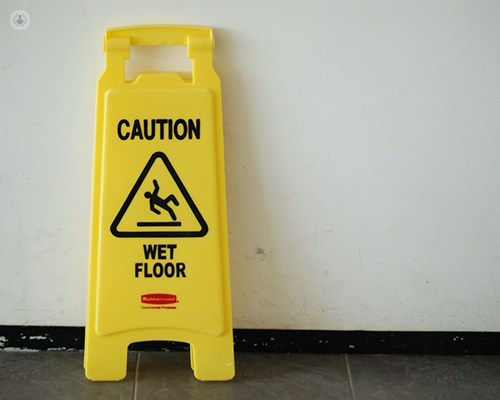Accidents at work
What are work accidents?
The definition of a work accident can differ between countries, governing bodies and industries, but generally, a work accident can be defined as any bodily injuries caused as a result of the work they perform. Hence, for an accident to be considered a ‘work accident’, the following should apply:
- The worker suffers an injury (wound, blow or illness).
- The accident is due to work, and there is a direct causal relationship between work and the injury (i.e. the injury by itself does not make it a work accident).

The following are generally considered work accidents:
- Accidents suffered when going or returning from work.
- Accidents suffered when performing a regular task at work during working hours.
- Accidents suffered when performing irregular tasks, but which have been requested by the employer.
- Illnesses contracted due to their job, but this must be proven.
- Diseases or conditions previously suffered, but have been made worse or aggravated by an accident at work.
However, the following generally are not considered work accidents:
- Accidents caused by external, major events not related to work (e.g. terrorist attacks or natural disasters).
- Accidents caused by the recklessness of a worker.
- Accidents caused by another worker that are not related to work (e.g. fights or pranks between workers that result in injury).
- Accidents suffered as a result of intentional crimes being committed.
What happens after an accident at work?
Following a work accident, the general response may include:
- First aid by a trained first aider (this is often a number of elected volunteers within the workforce)
- Any necessary emergency services being called out
- Logging of the accident and how it occurred
- Notifying any relevant trade unions
- An investigation by a third party of the accident